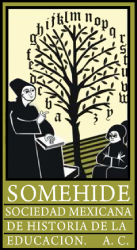Marist heritage in Rio de Janeiro: The materialization of an education for memory by an educational religious congregation
DOI:
https://doi.org/10.29351/amhe.v4i1.676Keywords:
Heritage, Marist College São José, memory, history of educationAbstract
This article presents how the Marist school buildings act in the education developed by the religious from the memories produced inside. We assume that the materiality of these buildings, together with the educational practice of the Marists, contributed to the longevity of the congregation of the Marist Brothers in the city of Rio de Janeiro. To defend this idea, we seek from written and oral sources to understand what led these religious to remain for more than 120 years exercising the same social educational function in the territory of Rio de Janeiro, from 1902 to the present day, students from middle and upper classes have been attending. In our analysis we have the concepts of memory and heritage, as well as the help of Walter Benjamin and Carlos Ginzburg, to retrace the traces left by written and oral sources in order to exploit the continuum of history, with the aim to perceive the effects of the age of congregations in the city of Rio de Janeiro. The results so far indicate that the sum of the places where schools were set up with the memory of the pupils and the transmission of the school as a legacy through generations are some of the factors that explain the mark that the Marists produced in the city. From our point of view, these Marist buildings, which have become a heritage for time and memory, are inserted in the history of Brazilian education because religious congregations participated effectively in the construction of what we understand by school education in Brazil since the 16th century with the Jesuits.
References
Assmann, A. (2011). Espacios de memoria. Unicamp.
Azzi, R. (1997). Historia de la educación católica en Brasil. Aporte de los hermanos maristas: 1897-1987. Simar.
Bittencourt, A. (2017). La era de las congregaciones: pensamiento social, educación y catolicismo. Pro-Posiciones, 28(3), 29-59.
Colégio Marista São José – Tijuca (2024). Nosso Colégio. https://marista.edu.br/saojosetijuca/nossa-historia/
Convenios relativos al Colegio de Río-Comprido (1901). Río de Janeiro.
Escolano Benito, A. (2000) El espacio escolar como escenario y como representación. Revista Teias, 1(2). https://www.e-publicacoes.uerj.br/index.php/revistateias/article/view/23853
Genevois, S. (2020). ¿Quelle approche geographique des territoires scolaires? Geocarrefour, 94(2), 1-28.
Ginzburg, C. (1989). Mitos, emblemas, signos: morfología e historia. Companhia Das Letras.
Ginzburg, C. (2004). Ninguna isla es una isla: cuatro visiones de la literatura inglesa. Companhia Das Letras.
Gonçalves, J. (2003). El patrimonio como categoría de pensamiento. En R. Abreu (org.), Memoria y patrimonio (pp. 25-34). Dp&A.
Gonçalves, J. (org.) (2013). A alma das coisas: patrimônios, materialidade e ressonância. Mauad X.
Hobsbawn, E. (2018). La producción masiva de tradiciones: Europa, 1870-1914. En E. Hobsbawn y T. Ranger (eds.), La invención de las tradiciones. Paz y Tierra.
Le Goff, J. (2012). Documento/Monumento. En J. Le Goff, Historia y memoria (pp. 509-524). Unicamp.
Leonardi, P. (2016). Educación y catolicismo. Pensar a Educação em Revista, 2(4), 3-23. http://pensaraeducacao.com.br/wp- content/uploads/sites/4/2017/04/vol_2_no_4_Paula_Leonardi.pdf
Leonardi, P. (2019). Memória, monumentos e educação: a distribuição no espaço e no tempo dos colégios católicos na cidade do Rio de Janeiro. Educação em Foco, 22(37), 151-170. https://revista.uemg.br/index.php/educacaoemfoco/article/view/2755
Leonardi, P., y Andrade, L. (2022). Congregaciones de docentes franceses en Brasil: patrimonio y memoria en Río de Janeiro. En P. Leonardi y M. A. C. Martins (eds), Religión, sujetos y género: historias de educación en tiempos de pandemia. Mauad X.
Leonardi, P., y Bittencourt, A. (2016). De documento religioso a fuente histórica: las actas del I Consejo Plenario de América Latina. Educación y Filosofía, 30, 1-20.
Löwy, M. (2005). Walter Benjamin: aviso de incendio. Una lectura de las tesis “Sobre el concepto de historia”. Boitempo.
Manzini, E. J. (1990/1991). A entrevista na pesquisa social. Didáctica, 26/27, 149-158. https://www.marilia.unesp.br/Home/Instituicao/Docentes/EduardoManzini/Entrevista_na_pesquisa_social.pdf
Marista Centro-Norte (2024). https://marista.edu.br/
Mignot, A. C. (2002). Cofre de los recuerdos, detrás de escena de las historias: el legado pionero de Armanda Álvaro Alberto. Bragança Paulista/Editorial de la Universidad de São Francisco.
Nora, P. (1993). Entre memoria e historia: la problemática de los lugares. Proyecto Historia, 10, 7-28.
Pensi (2024). Tijuca II. https://pensi.com.br/unidade/tijuca-ii/
Pollak, M. (1989). Memoria, olvido, silencio. Revista de Estudios Históricos, 2(3), 3-15.
Ricoeur, P. (2007). Memoria, historia, olvido. Unicamp.
Roux, R. (2008) De la Nation Catholique a la Republique Pluriculturelle en Amerique Latine. En M. Bertrand y R. Roux (eds.), De l’un au multiple. Dinámicas identificadas en América Latina. Presses Universitaires Du Mirail.
Santos, M. (2006). Dinero y territorio. En M. Santos, Territorio, Territorios (pp. 13-21). Dp&A.
Silva, D. (2013). Revisión de Memoria e Identidad, por Candau, J. Revista Ecuatorial, (1).
Sirinelli, J. F. (2006). La generación. En J. Amado y M. Ferreira (eds.), Usos y abusos de la historia oral. FGV.
Triviños, A. (1987). Introducción a la investigación en ciencias sociales: investigación cualitativa en educación. Atlas.
Yerushalmi, Y. H. (1984). Zakhor: historie et mémoire juive. La Découverte.
Downloads
Published
How to Cite
Issue
Section
License
Copyright (c) 2024 Pedro Henrique Nascimento de Oliveira

This work is licensed under a Creative Commons Attribution-NonCommercial 4.0 International License.
Todos los contenidos del Anuario Mexicano de Historia de la Educación se publican bajo una licencia Creative Commons Atribución No Comercial 4.0 Internacional (CC BY-NC 4.0), que permite compartir (copiar y redistribuir el material en cualquier medio o formato) y adaptar (remezclar, transformar y construir a partir del material) para fines no comerciales, dando los créditos a los autores y a la revista, tal como lo establece la licencia.
La política de acceso abierto y de licencias con “algunos derechos reservados” no niega la propiedad intelectual ni los derechos de los autores respecto a sus artículos, pues ellos son los titulares, en tanto que el Anuario Mexicano de Historia de la Educación no los reserva para sí ni para la institución editora, ya que se apegan a movimientos de acceso abierto como los Principios y Valores del Sistema de Información Científica Redalyc - Red de Revistas Científicas de América Latina y el Caribe, que pugnan por la eliminación de las políticas de embargo para que el autor retenga los derechos de su obra (principio número 8). Así como las políticas de acceso abierto del Directory of Open Access Journals (DOAJ).
Los autores podrán distribuir su propio material en cualquier otro medio o soporte, siempre y cuando sea para fines no comerciales, informando a los editores que el trabajo será publicado nuevamente y dando el crédito correspondiente al Anuario Mexicano de Historia de la Educación.
La publicación en el Anuario Mexicano de Historia de la Educación, por su carácter gratuito, no da derecho a remuneración económica alguna a los autores, ni a los dictaminadores.
Los lectores podrán reproducir (copiar), comunicar, distribuir o hacer obras derivadas de los artículos o colaboraciones publicados en el Anuario Mexicano de Historia de la Educación en los siguientes casos:
- Para fines públicos.
- Sin fines comerciales.
- Que se reconozca la autoría de la obra y se cite su origen con información completa: Apellido/s del autor, inicial/es del nombre/s. (año de publicación). Título del artículo. Nombre de la revista, volumen (número de ejemplar), página inicial del artículo-página final del artículo. DOI o URL (formato sugerido de acuerdo al estilo APA en su versión más reciente).
El cuerpo editorial del Anuario Mexicano de Historia de la Educación asumirá el compromiso de notificar oportunamente a los autores sobre cualquier cambio de ubicación de los artículos en el sitio (cambio de dirección URL o de conexiones para identificar el artículo).
Los autores, al enviar sus trabajos para su posible publicación, deberán tomar en cuenta los puntos anteriores, mismos que se contemplan en el Acuerdo entre autor y el Anuario Mexicano de Historia de la Educación.












